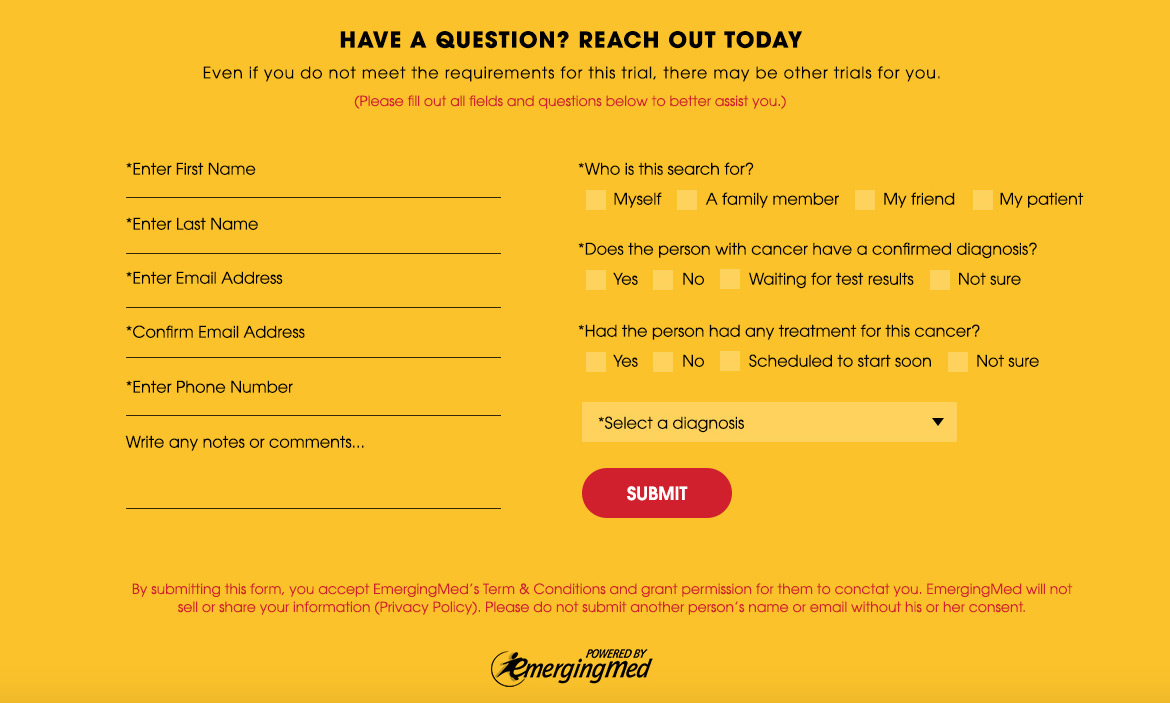Do you have cancer of the connective tissues (sarcoma) that has not spread (metastasized)? Stand Up To Cancer (SU2C) is supporting a clinical trial being conducted by SARC that may help prevent sarcomas from spreading, and improve the outcomes for patients like you.
Treatment for patients with sarcoma often involves radiation therapy before the tumor is removed with surgery. Studies suggest that when this radiation therapy is combined with a type of immunotherapy drug, called an immune checkpoint inhibitor, it could prevent sarcomas from spreading and improve outcomes for patients.
What is Pembrolizumab?
A humanized antibody used in cancer immunotherapy. It blocks a protective mechanism on cancer cells, and allows the immune system to destroy those cancer cells
Researchers on the SU2C-SARC032 Sarcoma Clinical Trials Team will test whether combining pembrolizumab with preoperative radiation therapy, along with additional pembrolizumab after surgery, can reduce the growth of tumors that may have spread. Researchers think that this combination of therapies may stimulate your own body’s immune response to cancer, helping to prevent a life-threatening spread of the disease.
This research may lead to a new “standard of care” for sarcoma patients, in other words, a new definition of the “best approach” that physicians should use to treat these cancers. It may also help guide researchers to what treatments they should test for other cancers.
This clinical trial is an initiative of the SU2C-SARC032 Sarcoma Clinical Trials Team, which seeks to bring new treatments to patients faster.





